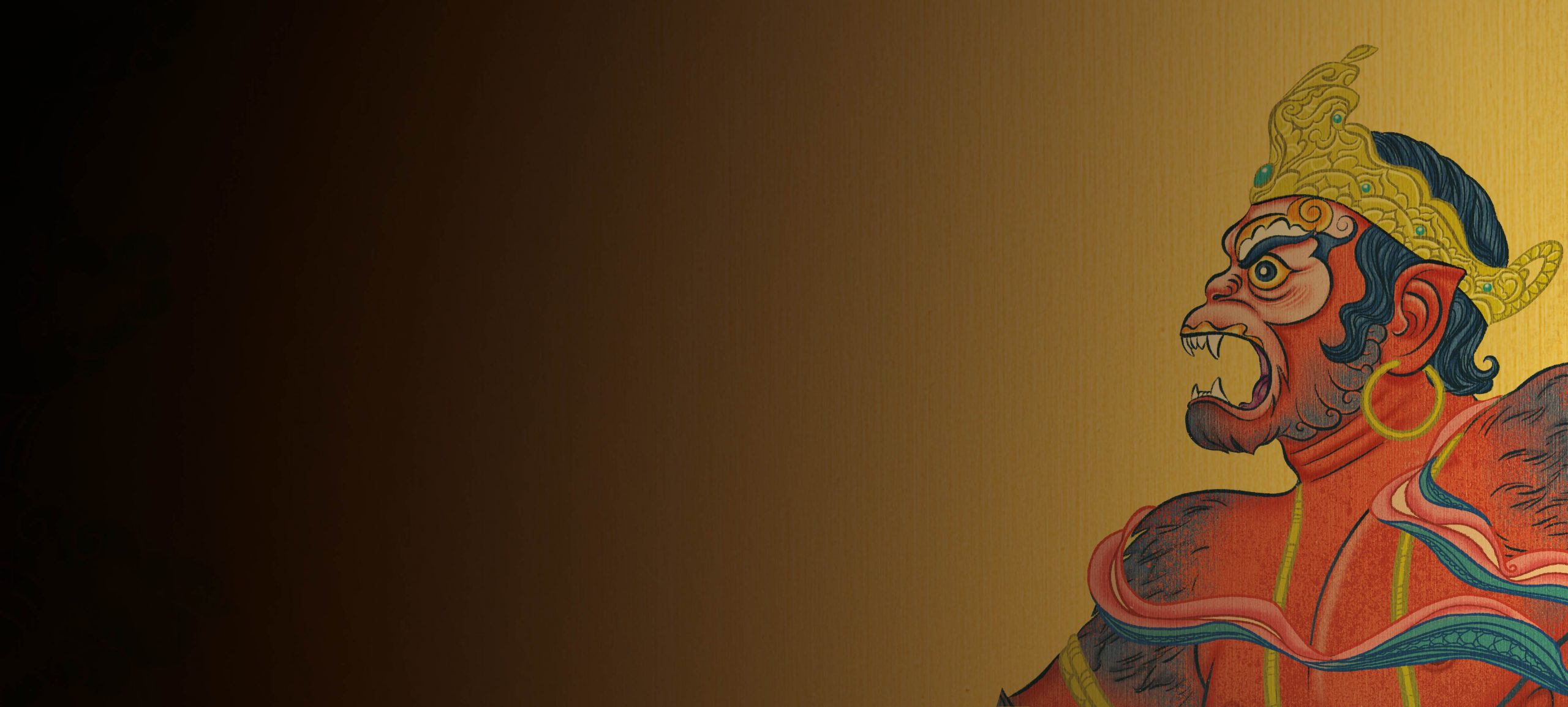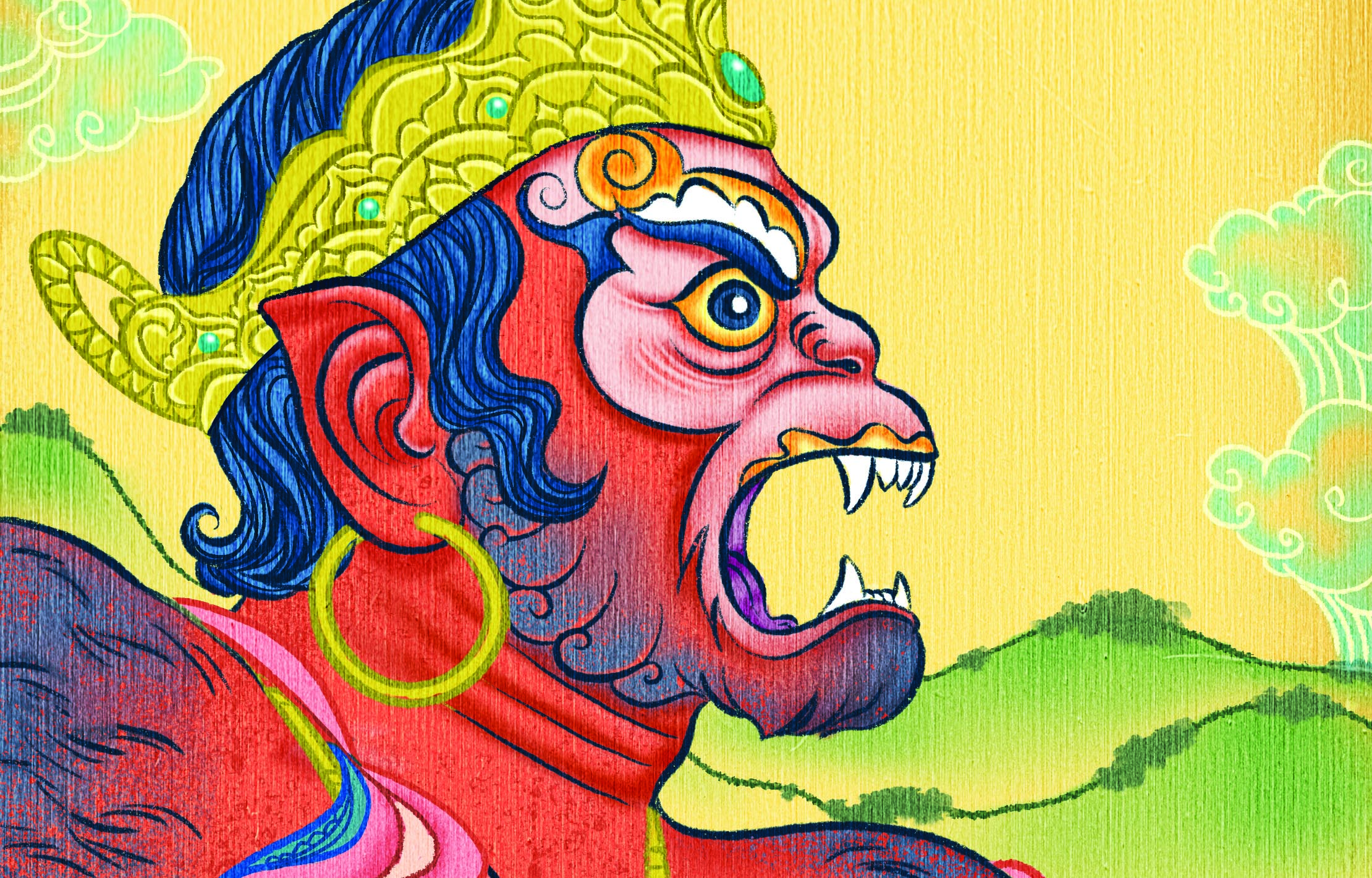Baali and Sugreeva of the Vana Nara tribe were orphan brothers who were born in abject poverty and grew up as slaves like most of their fellow tribesmen. But Baali was determined not to die a slave. Aided by his beloved brother, Sugreeva, Baali built a country for his people. For a brief period in history, it seemed as if mankind had found its ideal hero in Baali. But then fate intervened through the beautiful Tara, the daughter of a tribal physician. Loved by Baali and lusted after by Sugreeva, Tara became the cause of a fraternal war that would change history for ever.
The love triangle between Baali, Tara and Sugreeva is arguably the world’s first. Written by Anand Neelakantan who gave a voice to Ravana in Asura, Duryodhana in the Ajaya series and Sivagami in the Baahubali series, Vanara is a classic tale of love, lust and betrayal.
Here is an exclusive excerpt from the book about Baali’s legendary duel with Ravana:
‘What are the rules of duels? I can’t be standing here the entire day watching my opponent dry in the sun,’ Ravana said to Nala.
Nala explained to him that there are four fountains at the four corners of arena. Whoever flips the opponent to all the four fountains will be the winner. Ravana remarked that that made his task easy. Baali was already sunk half in the western fountain. Many found the remarks witty. The Asuras tittered.
Ravana tried to lift Baali by his armpit. Baali didn’t budge. The entire episode was turning into a farce and the king of Asuras was enjoying it. Tara sat with her cheeks burning in shame. She could feel the sense of defeat among her people. A sudden gasp caught her attention. The crowd had gone silent. Baali had caught Ravana’s head in his armpit. Ravana was still laughing, treating it as fun before he finishes off his opponent. Baali sat without moving. Only his bulging biceps betrayed his struggle. Ravana tried to free himself. His laugh had turned to a grunt. He started pummelling Baali’s back with his free hand but Baali was choking him. The pummelling soon became weak. Baali stood up with a roar. Ravana was still at the crook of his arm. He jumped into the fountain, dragging his opponent. He dunked into water, taking Ravana with him. The crowd watched with trepidation. Baali sprang up, dripping wet but Ravana’s head was still in his grip. He threw Ravana into water and walked out of the fountain. Behind him Ravana was struggling to get up. Baali stood at the edge of the water, beat his chest, threw back his head and roared.
The crowd erupted in a loud cheer. The Parai drums that were silent for so far, rolled in a frenzy. Many Vanaras were crying, hugging each other and Vanara women were ululating. Tara couldn’t control her tears or her smile. Baali walked to the centre of the arena. The Asura crowd was dangerously silent. Baali stood with his clenched fists pressing his waist. Tara wanted to cry, Baali, watch out, for she saw Ravana had recovered and was rushing towards Baali. Ravana kicked Baali, sending him sprawling on the mud. The Asuras roared with cheer, but it was short-lived. Baali rasped Ravana from behind, his arms locking the Asura king’s neck in a death grip. He dragged Ravana and threw him into the fountain on the east side of the arena. Baali let out his monkey roar again. Tara saw a few Asuras stand up. Their swords had come out of the sheath. Some were stringing their bows. The Vanara warriors on the other hand were busy cheering their chief. The moment Ravana was on his feet, Baali jumped into the fountain and caught Ravana by his long hair. He dragged the Asura king to the Southern fountain. The wild roar accompanied the pummelling of his chest. By now the Parai drummers had jumped to the arena and had started dancing. The drum rolls were deafening and the Vanaras were cheering in ecstasy. When Baali dunked Ravana in the Northern Fountain, the entire Vanara crowd rushed to the arena, erupting in joy. A monkey man had vanquished the mighty Asura emperor. The Asura crowd rose in anger, clanging their swords on their shield. They couldn’t believe their king, the greatest of all warriors who had conquered the entire Jambudweepa, under whose armies the mighty armies of Devas crumbled, was defeated by a black-skinned, thick-lipped, monkey man. The great scholar of Vedas, musician, scholar, statesman, warrior and dashingly handsome Mahabrahmana Ravana was squirming under the feet of a crude, low-caste, untouchable, illiterate, ugly monkey. The Asuras couldn’t digest the insult.
Tara screamed at her people to be alert. The Asuras were attacking against all rules of a duel. The Vanaras were busy celebrating their leader’s victory. Even the three council members were cheering. The freedom and honour of Vanaras had been protected by Baali. The Asura army descended on the arena like a storm. They smashed everything on the way. A section of the arena caught fire, perhaps deliberately set. The terrified Vanaras were scattered. Some ran to Baali, while others pushed and shoved to get away from the chaos. Tara struggled her way to reach Baali. Sugreeva was brandishing his mace at the attacking crowd, shielding Baali. Chemba was snarling at anyone who dared to come near his master. Unmindful of the din, Baali was giving his victory roar. Tara broke through the crowd and ran to Baali. His gaze fell on her and he stopped his roar midway. The Asuras had circled him. If they kill him, she would die with him, she decided.
‘Enough,’ Tara heard Ravana speak. The Asura king stood up, dripping wet. There were gashes around his neck where Baali had gripped him. He steadied himself, holding Baali’s shoulders.
‘Back off,’ Ravana commanded. The Asura army became still, but they were glaring at Baali and their arrows, spears, swords and lances pointed at her husband.
‘We fought face to face, as any man of honour would do.’ Ravana’s voice was even. ‘He won fair. I have no shame in admitting my defeat. That is the only honourable thing to do. And I am ready to die in his hands as per the rule of the duel. No Asura will raise even a whimper. If I have been a good leader, honour me at my time of death.’
The arena turned silent. Ravana knelt before Baali. He whispered, ‘You won monkey. Now kill me. I assure you that no Asura would object to my death. That is my word. Don’t be sacred. Do the honourable thing.’
‘Why should I kill you?’ Baali asked.
‘The reward of defeat in a duel is death. Don’t insult my honour, monkey. Make it fast.’ For the first time in the day, Tara heard Ravana’s voice shiver. The impending death was making him sound like an ordinary man. Tara wished her husband would finish the Asura king before Ravana lost his courage and nobility. The Asura army was fuming with the shame of a dishonourable defeat at the hands of those they considered barbarians.
‘We are Vanaras, Ravana. The rules of humans don’t apply to us. We fight only for food, territory or mate. The beast that gets defeated is spared unless the victor wants to eat the vanquished in our world. You are free to go. Never enter our territory again,’ Baali said and walked away. Asuras parted to make way for the Vanara chief. The wolf trotted behind him.
Shakespearean in its tragic depth and epic in its sweep, Vanara gives voice to the greatest warrior in the Ramayana-Baali.








